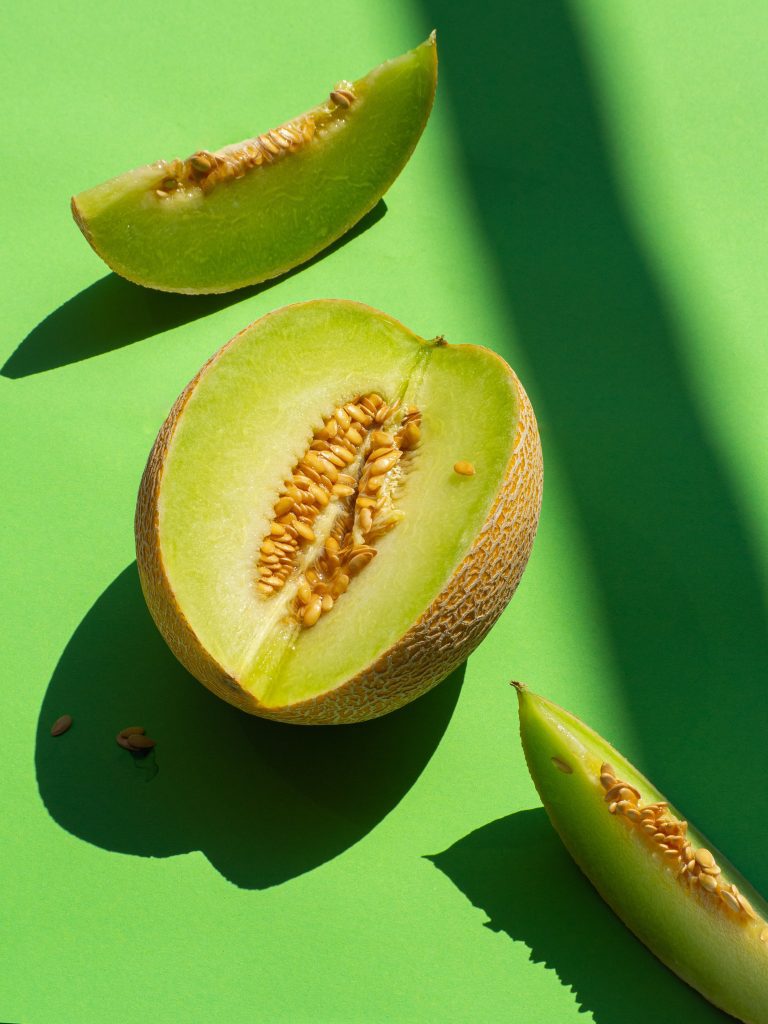Can Dogs Safely Eat Honeydew?

Hey! Have you ever wondered if dogs can safely enjoy some honeydew? Well, the good news is that dogs can indeed eat honeydew! This juicy and refreshing fruit can be a delightful treat for your furry friend. Honeydew is low in calories and fat, making it a healthy choice for dogs. It is also packed with essential vitamins and minerals that can contribute to their overall well-being. However, it’s always important to remember moderation. Too much honeydew can lead to an upset tummy or diarrhea. So, if you decide to share this tasty fruit with your canine companion, make sure to give them small, manageable portions, and keep an eye out for any adverse reactions. Enjoy a sweet and safe treat together!
The Nutritional Value of Honeydew
Honeydew, a delicious and refreshing fruit, is not only a tasty treat for humans but can also provide some nutritional benefits for our furry friends. Packed with essential vitamins and minerals, as well as being a good source of fiber, honeydew can be a healthy addition to your dog’s diet.
Vitamins and minerals in honeydew
Honeydew is rich in a variety of essential vitamins and minerals that can contribute to your dog’s overall health. It contains vitamins such as vitamin C, which acts as an antioxidant and helps boost the immune system, and vitamin B6, which plays a vital role in brain development and function. Additionally, honeydew is a good source of minerals like potassium, which aids in maintaining proper fluid balance in the body, and magnesium, which is essential for bone health.
Fiber content in honeydew
Fiber is an essential nutrient for dogs, as it helps regulate digestion and ensures proper bowel movements. Honeydew contains a moderate amount of fiber, which can support your dog’s digestive system and promote a healthy gut. This can be particularly beneficial for dogs who may struggle with constipation or other digestive issues.
Potential Benefits of Honeydew for Dogs
Introducing honeydew into your dog’s diet can offer several potential benefits. From improved digestion to boosted immunity, honeydew can be a nutritious addition to their meals.
Improved digestion
The fiber content in honeydew can aid in digestion by promoting regular bowel movements and preventing constipation. It can also help regulate the overall digestive process, ensuring that nutrients are properly absorbed by your dog’s body. By incorporating honeydew into their diet, you may notice an improvement in your dog’s overall digestion and gastrointestinal health.
Hydration support
Honeydew has high water content, which can be beneficial in keeping your dog hydrated, especially during hot weather or after physical activities. Staying properly hydrated is crucial for your dog’s overall health and can help prevent issues such as dehydration and heatstroke. Adding a few pieces of honeydew to their water bowl or incorporating it into their meals can help keep them hydrated and refreshed.
Boosts immune system
The vitamin C content in honeydew acts as an antioxidant and plays a vital role in supporting a healthy immune system. A strong immune system is essential for your dog’s overall wellbeing, as it helps protect against infections and diseases. By adding honeydew to their diet, you can provide an additional boost to their immune system.
Improved skin and coat health
Honeydew contains vitamins and minerals that can contribute to healthy skin and a shiny coat for your furry friend. The combination of vitamin C and other antioxidants in honeydew can help combat free radicals that can damage skin cells. Additionally, the hydration support from the high water content in honeydew can also contribute to the overall health and appearance of your dog’s skin and coat.

Risks and Considerations of Feeding Honeydew to Dogs
While honeydew can provide numerous benefits, there are some risks and considerations to keep in mind when feeding it to your dog.
Allergic reactions
Although rare, some dogs may have allergies or sensitivities to certain fruits, including honeydew. It’s essential to monitor your dog for any adverse reactions, such as itching, hives, or gastrointestinal upset, after consuming honeydew for the first time. If you notice any signs of an allergic reaction, it’s best to consult with your veterinarian and discontinue feeding honeydew to your dog.
Gastrointestinal upset
Feeding your dog too much honeydew or introducing it too quickly into their diet may lead to gastrointestinal upset, such as diarrhea or stomach discomfort. To avoid these issues, it’s crucial to introduce honeydew gradually and in appropriate portions. If you notice any digestive issues, it’s advisable to reduce or eliminate honeydew from your dog’s diet and consult with your veterinarian if the symptoms persist.
Sugar content in honeydew
Honeydew naturally contains sugar, although it is not as high in sugar as some other fruits. While a small amount of sugar can be safely consumed by dogs, excessive sugar intake can lead to weight gain, dental problems, and even diabetes. It’s important to offer honeydew to your dog in moderation and ensure it is balanced with their overall diet.
Preparing Honeydew for Dogs
Before offering honeydew to your dog, it’s essential to properly prepare it to ensure it is safe and easily digestible for them.
Washing and cutting honeydew
Thoroughly wash the honeydew to remove any dirt or potential pesticides that may be present on the skin. Cut the honeydew into small, manageable pieces, removing the rind and seeds, as they can pose a choking hazard or be difficult for your dog to digest. It’s best to serve honeydew in bite-sized portions to make it easier for your dog to consume.
Serving size and moderation
As with any new food introduced to your dog’s diet, it’s important to start with small amounts of honeydew and gradually increase the serving size. Monitor your dog’s reaction to the fruit and ensure they tolerate it well before offering more. The appropriate serving size of honeydew will depend on your dog’s size and individual dietary needs. Consult with your veterinarian to determine the ideal portion size for your furry friend.

Introducing Honeydew to Dogs
When introducing honeydew to your dog, it’s best to follow a few simple steps to ensure a smooth transition and monitor their response.
Start with small amounts
Begin by offering your dog a small piece of honeydew and observe their reaction. If they enjoy it and show no signs of adverse effects, you can gradually increase the serving size over time. Remember to keep the portion size appropriate for your dog’s size, age, and overall dietary requirements.
Monitor for digestive issues or allergies
Pay close attention to your dog’s digestive system and overall well-being after introducing honeydew to their diet. Look for any signs of gastrointestinal upset, such as diarrhea, vomiting, or excessive gas. Additionally, be mindful of any allergic reactions, such as itching, swelling, or difficulty breathing. If you notice any concerning symptoms, consult with your veterinarian to determine the best course of action.
Alternatives to Honeydew for Dogs
If your dog shows signs of allergies or doesn’t particularly enjoy honeydew, there are other dog-friendly fruits and vegetables that can provide similar nutritional benefits.
Other dog-friendly fruits
Some fruits that are safe and healthy for dogs include apples, bananas, blueberries, and watermelon. These fruits offer a variety of vitamins, minerals, and antioxidants, making them a nutritious addition to your dog’s diet. However, it’s essential to research each fruit and consult with your veterinarian to ensure they are safe for your specific dog breed and individual dietary needs.
Vegetables as a healthy option
Vegetables like carrots, green beans, and sweet potatoes can also be a great alternative to honeydew for dogs. These vegetables are low in calories, rich in fiber, and provide essential nutrients. They can be steamed, pureed, or served raw, depending on your dog’s preferences and ability to chew.

Consulting with a Veterinarian
Before making any major changes to your dog’s diet or introducing new foods, it’s always a good idea to consult with your veterinarian.
Discussing your dog’s diet and specific needs
Your veterinarian knows your dog’s medical history, dietary requirements, and any specific health concerns they may have. They can provide personalized advice and guidance on whether honeydew is suitable for your dog and how it can be incorporated into their diet.
Seeking professional guidance
In certain cases, such as if your dog has existing health conditions or a complicated medical history, it may be necessary to seek specialized advice from a veterinary nutritionist. These professionals can create customized diet plans that take into account your dog’s specific needs, ensuring a well-balanced and nutritious diet.
Conclusion
Honeydew can be a tasty and nutritious addition to your dog’s diet when offered in moderation and prepared correctly. With its vitamin and mineral content, fiber, and hydration support, honeydew can contribute to improved digestion, immune system function, and overall health for your furry friend. However, it’s important to monitor for any potential allergies or digestive issues and consult with your veterinarian before making any dietary changes. By following the recommended guidelines and seeking professional advice when needed, you can ensure the well-being and happiness of your dog while enjoying the occasional treat of honeydew together.